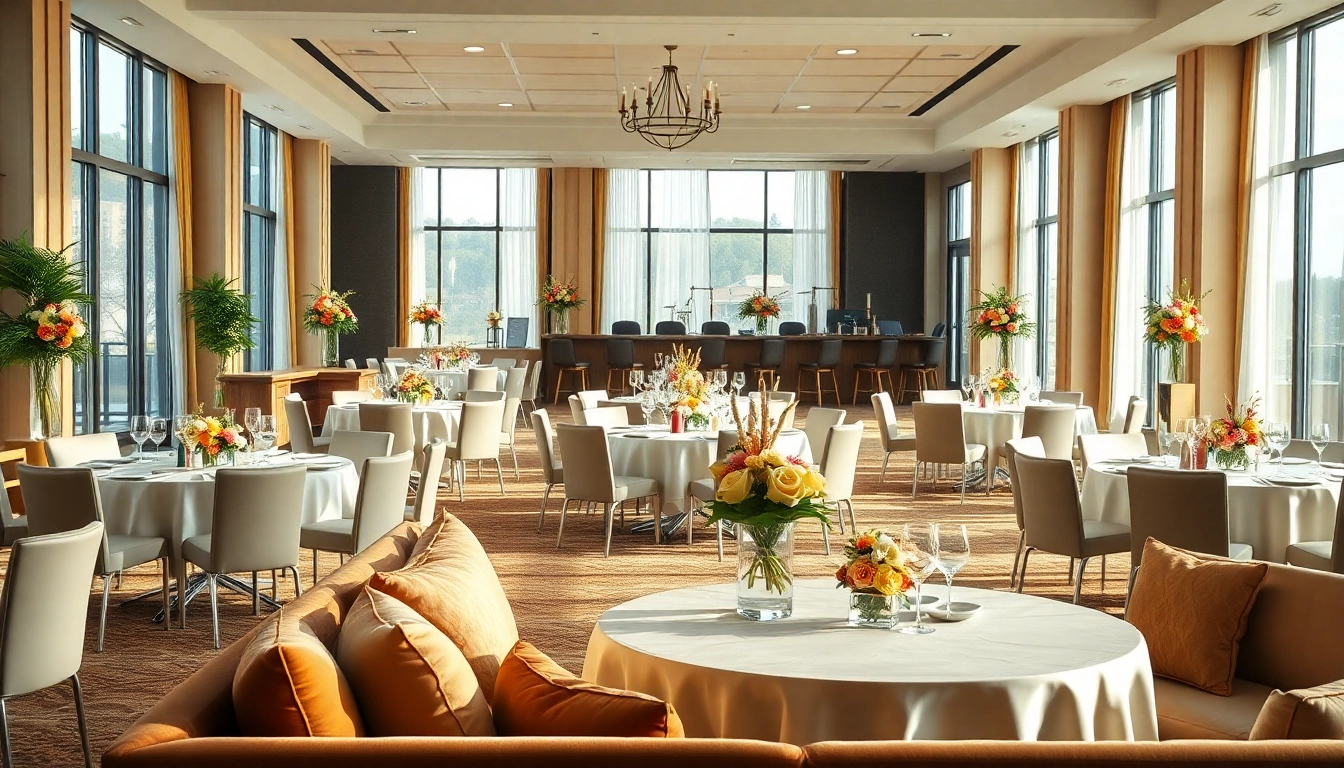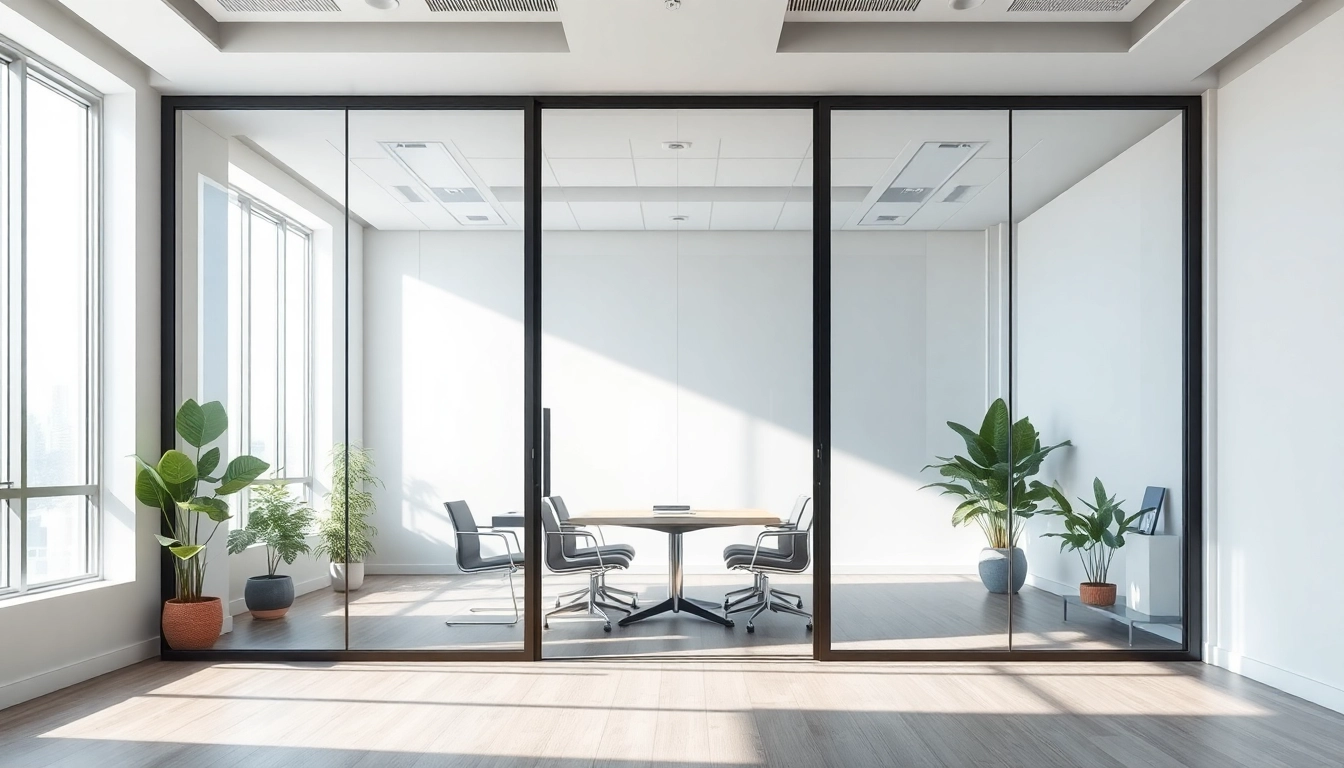The Importance of Choosing an Ideal Event Space
Choosing the right event space is critical for any gathering, be it a business conference, wedding, birthday bash, or corporate retreat. The venue sets the tone of the event and can significantly influence the overall experience of attendees. Understanding the nuances of your specific event needs, the factors involved in selecting an appropriate space, and the ambiance’s role in determining success are pivotal in your planning process.
Understanding Your Event Needs
When organizing an event, start by defining its purpose and goals. Are you hosting a casual get-together or a formal corporate gathering? Understanding whether the event is designed to inform, entertain, or connect people will guide many subsequent decisions.
Additionally, identify the expected number of attendees. This helps narrow down choices in terms of space size and layout. Evaluate your budget to ensure it aligns with your venue expectations, as this will also dictate your options. Lastly, think about the event’s duration and whether you’ll require any special features, such as audio-visual equipment, catering services, or breakout rooms.
Factors to Consider When Selecting an Event Space
There are several factors to consider when choosing the perfect event space
- Location: Is the venue accessible for your attendees? Consider proximity to public transport, parking availability, and the neighborhood’s safety.
- Capacity: Ensure the space can comfortably accommodate your guests. Overcrowding can lead to a negative experience.
- Facilities: Investigate whether the venue offers essential amenities—restrooms, seating, internet access, and catering capabilities.
- Amenities: Check for additional services such as on-site staff, security, full-service catering, and event planning support that can enhance your event.
- Cost: Compare rental costs and ensure that they align with your budget while providing visibility on additional costs like deposits and insurance fees.
The Role of Ambiance in Event Success
The ambiance is often overlooked but is fundamental in creating the desired atmosphere for your gathering. Think of how lighting, color scheme, layout, and decor can affect the mood:
- Lighting: Strategic lighting can create an inviting atmosphere. A well-lit room can enhance your event’s energy, while softer lighting can foster intimacy.
- Layout: Ensure the space enables the desired format—whether it’s a seated dinner, workshop, or open networking event, the arrangement should facilitate interaction.
- Decor: Align decor with your event theme. From centerpieces to table arrangements, every visual detail contributes to your event’s overall feel.
Types of Event Spaces to Consider
Flexible Event Spaces for Diverse Functions
Flexible event spaces have gained popularity due to their adaptability. These venues cater to a multitude of event types, from corporate meetings and workshops to social gatherings and even concerts. A flexible event space allows for quick layout changes, which is especially useful for organizations that may require different configurations throughout the day. When assessing flexibility, inquire about movable walls, adjustable seating, and available technology to ensure your space can evolve as your event progresses.
Outdoor vs. Indoor Event Space: Pros and Cons
Whether to choose outdoor or indoor space depends on several factors, including your event type, time of year, and the anticipated guest experience. Here’s a brief overview of their advantages and disadvantages:
| Space Type | Pros | Cons |
|---|---|---|
| Outdoor Space | Natural ambiance, scenic views, conducive to larger crowds. | Weather-dependent, logistical challenges (e.g., electrical access). |
| Indoor Space | Controlled climate, guaranteed shelter from the elements, more privacy. | Limited capacity, may require additional decor for ambiance. |
Trends in Event Space Design and Setup
The event industry evolves rapidly, unveiling trends that influence how spaces are designed and utilized. Here are a few current trends:
- Sustainability: Venues focus on eco-friendly practices, utilizing biodegradable products and energy-efficient technologies.
- Technology Integration: Event spaces are increasingly equipped with advanced AV setups, high-speed internet, and even augmented reality features to enhance attendee engagement.
- Interactive Spaces: Design elements that encourage interaction, such as communal areas, breakout zones, and experiential installations, are becoming popular.
Planning Your Next Event in an Event Space
Key Preparations Before Booking the Event Space
Proper planning is critical to securing the right event space:
- Create a checklist: Document your event’s logistical needs, goals, and overall vision to keep everything organized.
- Conduct site visits: Visit different venues to evaluate their offerings in person before making a decision.
- Understand policies: Review cancellation and refund policies to avoid potential issues as the event date approaches.
Working with Vendors Inside Your Chosen Event Space
Once you’ve secured a venue, you’ll likely need to work with various vendors, such as caterers, decorators, and audio-visual techs. Coordination is key to ensuring a seamless event. Here are some tips:
- Communicate clearly: Establish a line of communication between venue staff and vendors to ensure everyone is aware of their responsibilities.
- Notable timelines: Provide each vendor with a timeline for setup, execution, and breakdown to minimize chaos on the event day.
- Rehearsals: Schedule a rehearsal day if possible to resolve any potential issues prior to the main event.
Ensuring Accessibility and Comfort for All Guests
Creating an inclusive environment should be a priority when selecting an event space. Focus on:
- Physical Accessibility: Ensure paths, entryways, and facilities are accessible to people with disabilities.
- Comfort Amenities: Provide adequate seating, temperature control, and restroom facilities for all guests.
- Dietary Considerations: Offer a range of food and beverage options to cater to diverse dietary needs.
Maximizing Your Budget for an Event Space
Budgeting Tips for Different Types of Events
Staying within your budget requires careful planning and allocation of resources. Here are some tips on budgeting based on event type:
- Corporate Events: Allocate funding for technology, promotional material, and expert speakers.
- Social Gatherings: Focus on catering and decor, as personal touches make these events memorable.
- Weddings: Prioritize the venue and catering, as these are often the highest expenses, followed by entertainment and photography.
Finding Value in Unique Event Space Features
Unique features can often justify slightly higher costs. For instance, a venue with an exclusive view or built-in technology may enhance the overall event experience:
- Unique architecture or historic significance can create a memorable atmosphere.
- In-house catering or exclusive partnerships may provide value and simplify coordination efforts.
Negotiating Costs and Understanding Rental Agreements
Don’t hesitate to negotiate rental costs. Discuss potential discounts for booking during off-peak times or for multi-day events. Make sure you fully understand your rental agreement. Key components to focus on include:
- Deposit and Refund Policies: Know what’s required upfront and your rights regarding refunds.
- Insurance Requirements: Some venues may require insurance or additional liability coverage, so factor this into your budget.
- Event Duration: Be clear on what’s included in the cost—this may include setup and cleanup time.
Post-Event Considerations for Your Event Space
Gathering Feedback from Attendees
After the event, it’s essential to collect feedback from attendees to evaluate success and inform future planning. Use a blend of qualitative and quantitative methods:
- Surveys: Create surveys to quantify satisfaction in various areas.
- Individual Feedback: Allow for open-ended responses to gather detailed insights on their experiences.
Assessing the Effectiveness of the Event Space
Consider the factors that contributed to the event’s success or shortcomings:
- Attendance Rates: Did you meet your expected number of attendees?
- Engagement Levels: Were participants interactive? Analyze hours spent in different areas of the venue.
- Overall Satisfaction: Determine overall satisfaction based on collected feedback.
Planning for Future Events in the Same Event Space
If the venue successfully met your requirements, consider planning future events there. Establish a good relationship with the venue staff. Here are some approaches:
- Future Bookings: Inquire about availability for future dates immediately after your event.
- Feedback Swap: Share insights with the venue staff—what worked, what didn’t, and suggestions for improvement for next time.
- Acknowledging Staff Contributions: Acknowledging the effort of venue staff fosters a solid working relationship, ensuring that they want to make your next event even more successful.



